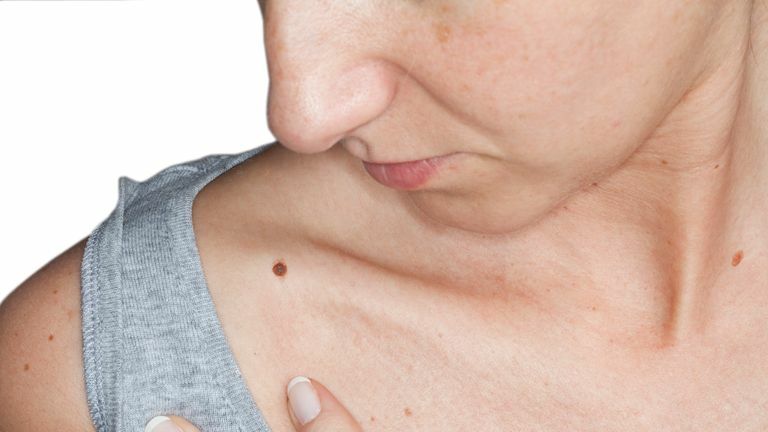Smartphone camera lens speeds up skin cancer diagnosis for thousands

A new smartphone camera lens has the potential to expedite skin cancer diagnosis for thousands of patients. The 50p-sized lens can be attached to a smartphone, enabling it to capture detailed images of moles and skin lesions. This innovative approach, referred to as “teledermatology” by NHS officials, is expected to be implemented across England by July. The technology could allow specialist doctors, such as dermatologists, to double the number of patients they assess daily.
In 2021, approximately 600,000 people were referred for skin cancer screenings, with 56,000 receiving treatment. During its testing phase, the device reportedly helped prevent around 10,000 unnecessary face-to-face appointments, according to NHS officials.
The technology may also benefit GPs in rural areas by enabling faster patient reviews. Dr Tom While, a GP from Somerset, praised the service, stating, “It’s a fantastic service and an asset to rural general practice, and hard to imagine working without it.”
A recent poll conducted by Censuswide on behalf of King Edward VII’s Hospital revealed that 22% of the 2,000 British adults surveyed do not wear sun cream. In addition to the camera lens technology, the NHS is also exploring artificial intelligence (AI) tools to detect skin cancer.
Skin cancer can be classified as non-melanoma or melanoma, with the latter being more severe. Non-melanoma often presents as a lump or discoloured patch of skin that slowly grows, while melanoma is typically indicated by a new mole or changes in an existing mole.
The AI technology, known as Deep Ensemble for the Recognition of Malignancy (Derm), is currently being tested alongside doctors’ assessments to determine if it reaches the same conclusions. NHS Chief Executive Amanda Pritchard emphasised the importance of “championing the use of digital technology” to reduce wait times and alleviate pressure on the healthcare system.
Latest Thailand News
Follow The Thaiger on Google News:


























